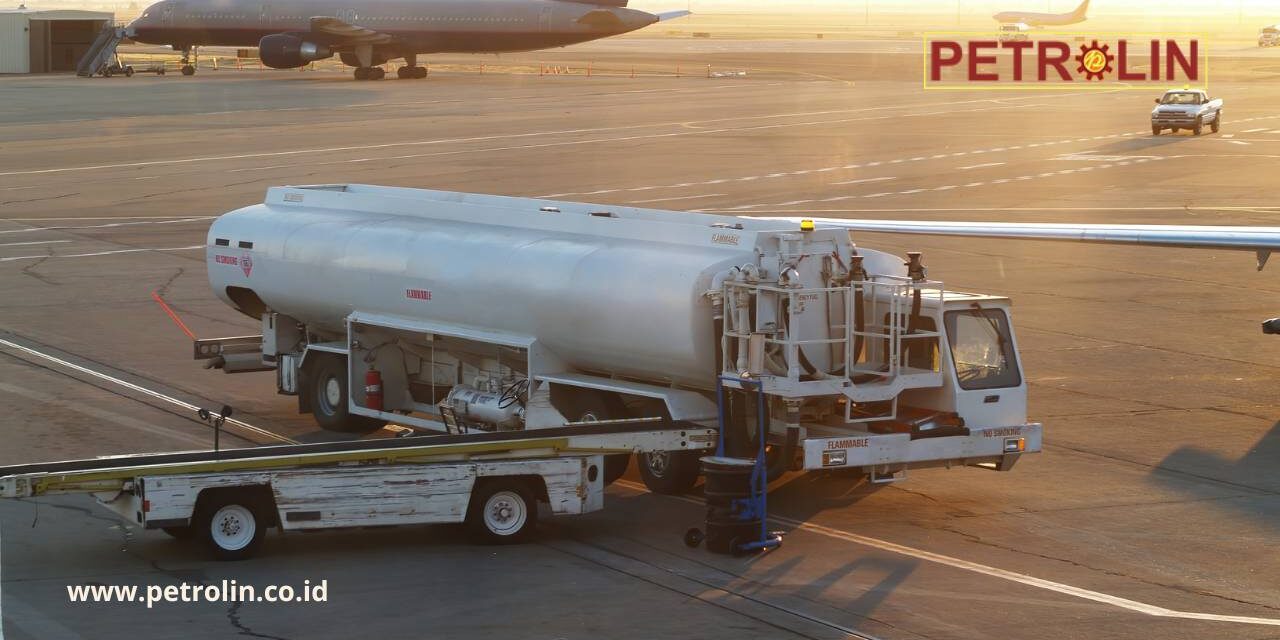What Is Bioavtur? Environmentally Friendly Fuel from Palm Oil
In recent years, the need for environmentally friendly fuel has become increasingly urgent. With rising awareness of climate change and the negative effects of fossil fuels, scientists and the energy industry have shifted their focus towards more sustainable fuel alternatives. One significant innovation in the renewable energy sector is Bioavtur—aviation fuel derived from vegetable oils, particularly Crude Palm Oil (CPO) or raw palm oil.
Bioavtur falls under the category of green fuel, or environmentally friendly fuel, that is expected to replace fossil fuels in the aviation industry. In addition to Bioavtur, the same technology also produces other products such as Green Diesel (D100) and Green Gasoline (G100), all based on palm oil.
What Is Bioavtur?
Bioavtur is aviation fuel made from vegetable oils, such as CPO and its derivative, Fatty Acid Methyl Ester (FAME). This fuel is developed as an alternative to fossil fuels that have long dominated the aviation industry. Because it uses renewable resources and reduces greenhouse gas emissions, bioavtur is categorized as an environmentally friendly fuel.
Benefits and Potential Uses of Bioavtur
The use of bioavtur offers numerous benefits, both environmentally and economically. Here are the main advantages of using bioavtur:
- Eco-Friendly: Bioavtur is produced from renewable vegetable oils, resulting in significantly lower carbon emissions compared to fossil fuels. This is a significant step in reducing the global carbon footprint, especially in the aviation sector, which is known as one of the largest contributors to carbon emissions.
- Supporting the Palm Oil Industry: Indonesia is one of the world’s largest producers of palm oil. Developing bioavtur from CPO could be a huge opportunity to add value to the domestic palm oil industry while creating new jobs and boosting economic growth.
- Renewable Energy: Unlike fossil fuels, which are limited and will eventually run out, bioavtur can be continuously produced from regrowing plants. This makes bioavtur one of the solutions for maintaining future energy security.
- Supporting Sustainable Aviation: With the development of bioavtur, the aviation industry can transition to more environmentally friendly fuel. This not only helps airlines reduce their negative environmental impact but also helps them meet regulatory targets related to carbon emissions.
How Is Bioavtur Made?
The production process of bioavtur involves several crucial stages, starting from CPO processing to producing fuel ready for use in the aviation industry. Here are the key steps:
- CPO Processing: Crude palm oil (CPO) is the raw material for bioavtur production. CPO undergoes chemical processing to separate fatty acids and glycerin.
- FAME Production: The processing of CPO produces Fatty Acid Methyl Ester (FAME), which is the base compound for bioavtur production. This FAME is further processed to meet international aviation standards.
- Blending and Testing: Bioavtur is then blended with conventional jet fuel in specific proportions to ensure performance and safety according to aircraft engine requirements. This blend undergoes a series of flight tests before being used commercially.
Challenges in Developing Bioavtur
Although bioavtur offers much potential, several challenges must be addressed before it can be widely adopted:
- High Production Costs: Currently, bioavtur production costs are relatively high compared to fossil fuels. This is mainly due to the advanced technology and specialized infrastructure required for production.
- Limited Production Scale: Bioavtur production is currently on a limited scale. Achieving mass adoption will require significant investment in production and distribution infrastructure.
- Strict Quality Standards: The aviation industry has stringent fuel quality standards, especially concerning safety and performance. Bioavtur must undergo extensive testing to ensure it can be safely used in commercial flights.
Bioavtur and Other Green Fuels
In addition to bioavtur, other eco-friendly fuels are also produced from vegetable oils, including Green Diesel (D100) and Green Gasoline (G100). These fuels are produced through processes similar to bioavtur production but are used for ground vehicles such as cars and trucks.
- Green Diesel (D100): Diesel fuel produced from vegetable oils like CPO, following a process similar to bioavtur production. This Green Diesel can be used directly in diesel engines without major modifications and emits lower emissions than fossil diesel.
- Green Gasoline (G100): Similar to Green Diesel, Green Gasoline is also derived from vegetable oils but is used as a substitute for gasoline. It offers a cleaner alternative to conventional gasoline-powered vehicles.
With the development of these three fuels—Bioavtur, Green Diesel, and Green Gasoline—Indonesia has the potential to lead the global transition toward cleaner and renewable energy.
Positive Impact of Bioavtur on the Environment and Economy
Using bioavtur has positive effects not only on the environment but also on the economy. Here are some of its impacts:
- Carbon Emission Reduction: By using bioavtur, the aviation industry can significantly reduce carbon emissions. This helps reduce the negative impact of aviation on climate change.
- Boosting the Palm Oil Economy: Bioavtur creates new opportunities for Indonesia’s palm oil industry. Producing bioavtur increases the added value of palm oil products and creates job opportunities and economic growth in palm oil-producing regions.
- Energy Security: Developing bioavtur locally can help Indonesia reduce its dependence on imported fossil fuels and strengthen national energy security.
FAQ (Frequently Asked Questions)
1. What is bioavtur?
Bioavtur is an aviation fuel derived from vegetable oils, especially palm oil or CPO. Bioavtur is considered environmentally friendly because it produces lower carbon emissions compared to fossil fuels.
2. Why is bioavtur important for aviation?
Bioavtur is important because aviation is one of the largest sectors contributing to carbon emissions. By using bioavtur, the aviation industry can reduce its carbon footprint and contribute to global efforts to combat climate change.
3. Is bioavtur widely used?
Currently, bioavtur use is still in the trial phase in several countries, including Indonesia. However, with advancements in technology and infrastructure, bioavtur is expected to be widely adopted in the future.
4. Is bioavtur more expensive than fossil fuels?
Yes, currently, bioavtur production costs are higher than fossil fuels. However, as production scales increase and technology advances, these costs are expected to decrease over time.
5. What is the difference between bioavtur, Green Diesel, and Green Gasoline?
Bioavtur is aviation fuel, while Green Diesel and Green Gasoline are fuels for ground vehicles. All three are derived from vegetable oils like CPO but are used for different purposes.
6. What is the biggest challenge in using bioavtur?
The biggest challenges are the high production costs, limited production scale, and stringent quality standards in the aviation industry. However, with proper investment and policy support, these challenges can be overcome.
Conclusion
Bioavtur is a crucial step in creating a more environmentally friendly aviation industry. By utilizing Indonesia’s palm oil potential, bioavtur not only contributes to reducing global carbon emissions but also boosts local economic growth. Although it faces some challenges, the long-term potential of bioavtur as a renewable energy solution is immense. Together with Green Diesel and Green Gasoline, bioavtur represents a tangible future for cleaner and more sustainable energy.



